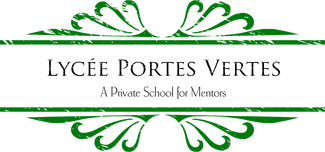It’s all Rachel’s fault. On Independence Day, she posted on the Thomas Jefferson Education Facebook page, “Define, compare and contrast: Independence/Freedom/Liberty . . . .” I have pondered those words for a couple of weeks now. What is Independence? What is Freedom? What is Liberty?
Independence is the opposite of dependence. And before the laughing begins, really think about what that means. The degree to which one is Independent is the degree to which one is not dependent on others. One who is Independent is exempt from others’ power and control, without their bias or influence, and is able to support and direct her/himself.
According to the Noah Webster’s 1828 American Dictionary of the English Language,* to be Independent is “to be separate from,” “bold,” “not connected with,” and “not obsequious.” I had to look that word up. Among other things, it means “yielding to the desires of others, properly to the will or command of a superior, but in actual use, it often signifies yielding to the will or desires of such as have not right to control.” Isn’t that interesting? Independence includes not yielding to those who have no right to control. Hence, The Declaration of Independence.
Independence is the opposite of dependence. And before the laughing begins, really think about what that means. The degree to which one is Independent is the degree to which one is not dependent on others. One who is Independent is exempt from others’ power and control, without their bias or influence, and is able to support and direct her/himself.
According to the Noah Webster’s 1828 American Dictionary of the English Language,* to be Independent is “to be separate from,” “bold,” “not connected with,” and “not obsequious.” I had to look that word up. Among other things, it means “yielding to the desires of others, properly to the will or command of a superior, but in actual use, it often signifies yielding to the will or desires of such as have not right to control.” Isn’t that interesting? Independence includes not yielding to those who have no right to control. Hence, The Declaration of Independence.
As I continued studying, I found it fascinating that the original root word for free means “to break, to separate, to divide, to redeem.” I love the word redeem, whose root is defined, “to obtain or purchase.” Freedom apparently has a price. Along with the logical “exemption from slavery, servitude, or confinement,” Freedom also involves enjoying privilege, franchise, or license. The United States is a free country.
How is Freedom different from Independence? To my mind, Freedom includes an action, with consequences (the price), while Independence seems to be a chosen state of being. Freedom is obtained, purchased, divided, and redeemed, but Independence is choosing not to yield to another’s power or control.
On the other hand, Liberty is “freedom from restraint, . . . and applicable to the body, or to the will or mind.” According to Webster, there are several types of Liberty—natural, or God- or nature-given; civil, or society-given; political, or Liberty given by one nation to another; and religious, or conscience-given. We complain about “taking liberties,” when one entity goes beyond the privileges given it by another entity.
As I compared the condition of Liberty to the actions of Freedom and the state of Independence, Liberty seems to be contingent on being granted, and accepting, permission to be exempt from certain restraints. Often the opposing restraints we conform to are for the greater good. For instance, because we follow the rules of the road, we—and others on the road—arrive at our destination safely. We possess the Independence or Freedom to run a red light, but we protect our Liberty by choosing to obey civil law and stop.
Together with Independence, Freedom, and Liberty, I’ve been thinking about the corollary concepts of Agency and Choice. What is Agency? What is Choice? How do they relate to Independence, Freedom, and Liberty? And how do they all relate to education?
Agency presupposes an agent, an being able to act and accept the consequences of those actions. Webster’s adds movement and power to the definition of Agency. An agent is often “entrusted with the business of another.” So, the idea of representation is suggested.
When we make a Choice, we select from two or more options. We use judgment, skill, and preference to choose the best option for the situation. As an adjective, Choice implies being precious, valuable, or of great worth.
Only a free agent can choose Liberty, Freedom or Independence. Only Agency and Choice allow us to retain those options in our lives, our communities, our societies, and our nations.
What happens when a student is not given Independence, Freedom, Liberty, Agency and Choice in education? If these five elements are not included, there is no true learning. The student has not been allowed, and is not then able, to act for himself and to accept the consequences of his actions. He is dependent upon others for his learning and is not free to pay the price to support or direct himself. Wisdom and accountability are not acquired when there are no options.
Sometimes we deprive ourselves of the benefits of an Agency education. We wait for others to tell us what to do. We trust the experts, but not our hearts. We don’t pay the price to get the education we need. Our state of being is not conducive to Independence. We don’t act for Freedom, and then accept responsibility for our own actions. We deny the Liberty we have already been given. We neglect our own Agency and Choice.
Let’s not celebrate Independence, Freedom, and Liberty one day of the year. Let’s use our Agency and Choice, and allow others to use theirs, to act with Independence, Freedom, and Liberty every day of the year.
*All definitions quoted are from Noah Webster’s 1828 American Dictionary of the English Language.
How is Freedom different from Independence? To my mind, Freedom includes an action, with consequences (the price), while Independence seems to be a chosen state of being. Freedom is obtained, purchased, divided, and redeemed, but Independence is choosing not to yield to another’s power or control.
On the other hand, Liberty is “freedom from restraint, . . . and applicable to the body, or to the will or mind.” According to Webster, there are several types of Liberty—natural, or God- or nature-given; civil, or society-given; political, or Liberty given by one nation to another; and religious, or conscience-given. We complain about “taking liberties,” when one entity goes beyond the privileges given it by another entity.
As I compared the condition of Liberty to the actions of Freedom and the state of Independence, Liberty seems to be contingent on being granted, and accepting, permission to be exempt from certain restraints. Often the opposing restraints we conform to are for the greater good. For instance, because we follow the rules of the road, we—and others on the road—arrive at our destination safely. We possess the Independence or Freedom to run a red light, but we protect our Liberty by choosing to obey civil law and stop.
Together with Independence, Freedom, and Liberty, I’ve been thinking about the corollary concepts of Agency and Choice. What is Agency? What is Choice? How do they relate to Independence, Freedom, and Liberty? And how do they all relate to education?
Agency presupposes an agent, an being able to act and accept the consequences of those actions. Webster’s adds movement and power to the definition of Agency. An agent is often “entrusted with the business of another.” So, the idea of representation is suggested.
When we make a Choice, we select from two or more options. We use judgment, skill, and preference to choose the best option for the situation. As an adjective, Choice implies being precious, valuable, or of great worth.
Only a free agent can choose Liberty, Freedom or Independence. Only Agency and Choice allow us to retain those options in our lives, our communities, our societies, and our nations.
What happens when a student is not given Independence, Freedom, Liberty, Agency and Choice in education? If these five elements are not included, there is no true learning. The student has not been allowed, and is not then able, to act for himself and to accept the consequences of his actions. He is dependent upon others for his learning and is not free to pay the price to support or direct himself. Wisdom and accountability are not acquired when there are no options.
Sometimes we deprive ourselves of the benefits of an Agency education. We wait for others to tell us what to do. We trust the experts, but not our hearts. We don’t pay the price to get the education we need. Our state of being is not conducive to Independence. We don’t act for Freedom, and then accept responsibility for our own actions. We deny the Liberty we have already been given. We neglect our own Agency and Choice.
Let’s not celebrate Independence, Freedom, and Liberty one day of the year. Let’s use our Agency and Choice, and allow others to use theirs, to act with Independence, Freedom, and Liberty every day of the year.
*All definitions quoted are from Noah Webster’s 1828 American Dictionary of the English Language.


 RSS Feed
RSS Feed
